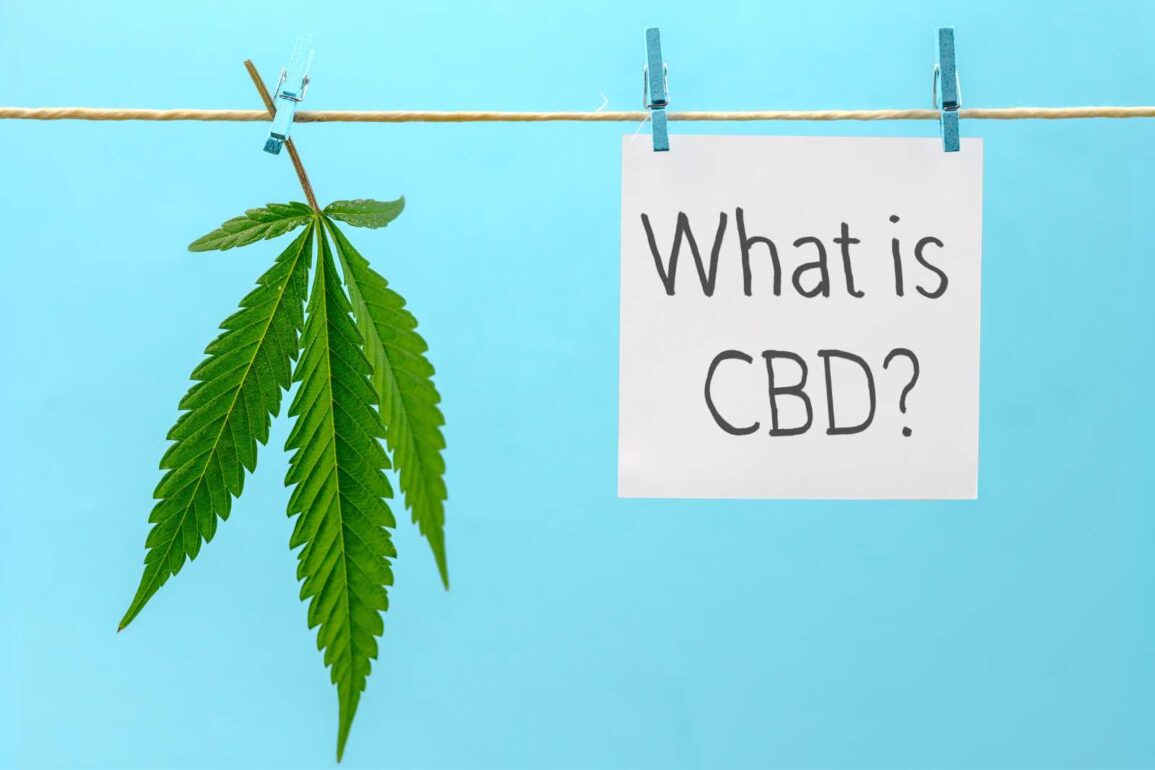The cannabis plant naturally produces cannabidiol, which is short for cannabidiol. There is no psychoactive effect from CBD, unlike THC. Because of CBD’s potential therapeutic properties, it has attracted a lot of attention. What is CBD, and How Does It Work : As a result of its interaction with the endocannabinoid system, it regulates various physiological processes within the body. The brain and immune system may be able to regulate pain, inflammation, mood, sleep, and other functions through CBD’s interaction with cannabinoid receptors. Although research is ongoing, CBD shows promise in managing conditions such as epilepsy, anxiety, insomnia, and chronic pain. Before using a supplement, consult with a healthcare professional since individual experiences can vary.
Table of Contents
- What does CBD stand for?
- Where does CBD come from?
- What is a CBD tincture?
- Is CBD legal?
- Does CBD oil actually do anything?
- How does CBD work in the body?
- How does CBD oil make you feel?
- Does cannabidiol (CBD) help with chronic pain?
- What is the downside of CBD?
What does CBD stand for?
The cannabis plant naturally produces a compound called cannabidiol, which is referred to as CBD. It contains a number of cannabinoids, including CBD, but it does not produce a psychoactive effect, unlike THC (tetrahydrocannabinol). The therapeutic benefits of CBD are becoming increasingly recognized among the public.
Where does CBD come from?
CBD can be derived from both marijuana and hemp plants. Marijuana-derived CBD is typically high in THC and is subject to legal restrictions in many places. In contrast, hemp-derived CBD has low levels of THC and is legal in many countries as long as it meets certain requirements.
What is a CBD tincture?
A CBD tincture is a liquid form of CBD extract that is usually taken orally. It is made by steeping CBD-rich hemp flowers or isolates in high-proof alcohol or another solvent. This process allows the CBD compounds to be infused into the liquid, resulting in a concentrated form of CBD that can be easily measured and consumed.
CBD: tincture vs. oil
There is a difference between CBD tinctures and CBD oils, but they are often used interchangeably. Combining CBD extracts with carrier oils like coconut or hemp seed oil results in CBD tinctures. Typically, a few drops are placed under the tongue for consumption. CBD oils, on the other hand, may refer to CBD extracts that are not mixed with a carrier oil or are used in other forms, such as capsules or topicals.
Is CBD legal?
It depends on which country you are in and even what region of the country you are in as to the legal status of CBD. When CBD derived from hemp with low levels of THC meets specific regulations, it may be legal in many places. However, CBD derived from marijuana, which may contain higher levels of THC, is subject to stricter regulations and may be restricted or prohibited. It is important to research and understand the laws and regulations regarding CBD in your specific location before purchasing or using it.
Does CBD oil actually do anything?
It is still unknown what the therapeutic effects of CBD may be, but there is evidence suggesting that it has several potential benefits. CBD has been studied for its potential to alleviate symptoms associated with conditions such as epilepsy, anxiety, insomnia, and chronic pain. There is, however, no guarantee that CBD will cure everything, and individual results will vary. To understand the potential benefits and risks of CBD, it is always recommended to speak with a healthcare professional.
How does CBD work in the body?
Many physiological processes are regulated by a complex network of receptors and neurotransmitters within the body through CBD’s interaction with its endocannabinoid system (ECS). As a result of CBD’s interaction with CB1 and CB2 receptors of the ECS, CBD is thought to affect the nervous system and the immune system, respectively. In addition to regulating pain perception, inflammation, mood, sleep, and other functions, CBD may also interact with these receptors. CBD may also affect non-cannabinoid receptors in the body, including serotonin receptors, which contributes to its therapeutic effects.
How does CBD oil make you feel?
Depending on the individual, CBD oil can have varying effects. While some individuals may experience a sense of relaxation or calmness, others may not notice any significant subjective effects.
Does cannabidiol (CBD) help with chronic pain?
CBD has shown promise for managing chronic pain, but more research is needed to fully understand its effects. Research has shown that CBD reduces pain and inflammation by activating pain receptors in the body. In spite of this, individual reactions to CBD may vary, and it may not work the same way for everyone. Talk to a healthcare professional about pain management options if you are interested.
What is the downside of CBD?
While CBD is generally well-tolerated, it can cause side effects in some individuals. There are a number of possible side effects, including fatigue, diarrhea, changes in appetite, and dry mouth. Before taking CBD, consult your healthcare professional if you are taking any medications. CBD products can vary in quality and potency because the CBD market is largely unregulated. It is crucial to purchase CBD products from reputable sources and to ensure they undergo third-party testing for quality and purity.
CBD vs. hemp oil
Many people confuse CBD oil with hemp oil, but they are actually two different products. Hemp stalks, leaves, and flowers are used to produce CBD oil, which contains high levels of CBD. While hemp oil contains very little to no CBD, hemp seeds are used to produce hemp oil. Dietary supplements and skin care products are the two primary uses for hemp oil.
CBD vs. Xanax
CBD and Xanax are not directly comparable, as they have different mechanisms of action and uses. Alprazolam, or Xanax, is a medication that falls into the family of medications known as benzodiazepines and is commonly prescribed for anxiety disorders. CBD, on the other hand, is a non-intoxicating compound that is being researched for its potential benefits in managing anxiety, among other conditions. In order to determine which treatment option is most appropriate for your specific situation, you should consult a healthcare professional.
Disclaimer – The contents of this article are provided solely for informational purposes and should not be considered medical advice. It is important to note that the information presented here is not meant to diagnose, treat, cure, or prevent any disease. Prior to embarking on any new health-related regimen, Always consult your healthcare provider before trying new supplements or treatments. Keeping you safe and well is our top priority. Additionally, it’s important to note that the FDA has not endorsed any claims regarding the health benefits of cannabis. Delta8Hub makes no guarantees or warranties regarding the accuracy, completeness, or usefulness of any messages contained here in

